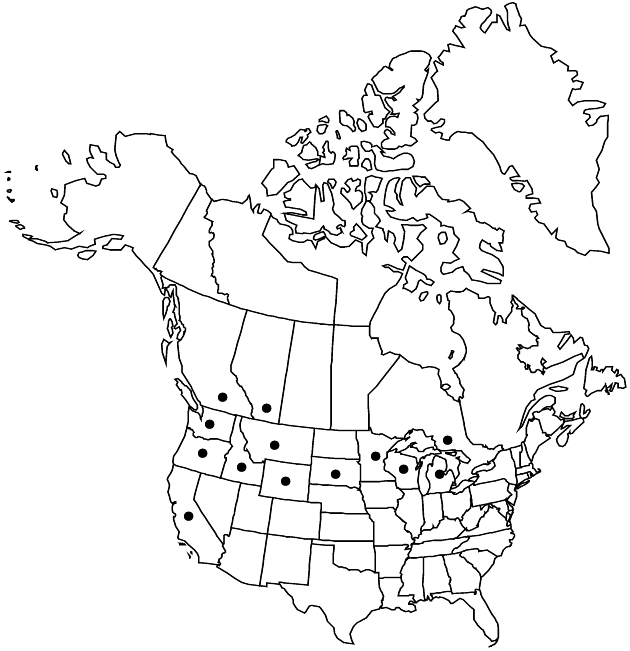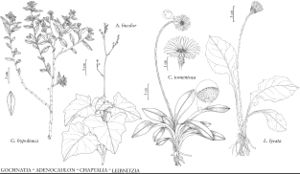Difference between revisions of "Adenocaulon bicolor"
Bot. Misc. 1: 19, plate 15. 1829.
Common names: Trail plant
IllustratedEndemic
Treatment appears in FNA Volume 19. Treatment on page 78.
FNA>Volume Importer |
imported>Volume Importer |
||
| (4 intermediate revisions by 2 users not shown) | |||
| Line 8: | Line 8: | ||
}} | }} | ||
|common_names=Trail plant | |common_names=Trail plant | ||
| + | |special_status={{Treatment/ID/Special_status | ||
| + | |code=F | ||
| + | |label=Illustrated | ||
| + | }}{{Treatment/ID/Special_status | ||
| + | |code=E | ||
| + | |label=Endemic | ||
| + | }} | ||
|basionyms= | |basionyms= | ||
|synonyms= | |synonyms= | ||
| Line 33: | Line 40: | ||
-->{{#Taxon: | -->{{#Taxon: | ||
name=Adenocaulon bicolor | name=Adenocaulon bicolor | ||
| − | |||
|authority=Hooker | |authority=Hooker | ||
|rank=species | |rank=species | ||
| Line 47: | Line 53: | ||
|publication title=Bot. Misc. | |publication title=Bot. Misc. | ||
|publication year=1829 | |publication year=1829 | ||
| − | |special status= | + | |special status=Illustrated;Endemic |
| − | |source xml=https:// | + | |source xml=https://bitbucket.org/aafc-mbb/fna-data-curation/src/2e0870ddd59836b60bcf96646a41e87ea5a5943a/coarse_grained_fna_xml/V19-20-21/V19_18.xml |
|tribe=Asteraceae tribe Mutisieae | |tribe=Asteraceae tribe Mutisieae | ||
|genus=Adenocaulon | |genus=Adenocaulon | ||
Latest revision as of 19:49, 5 November 2020
Aerial stems usually leafy only near bases, openly branched. Leaves: petioles winged; blades 3–nerved, 3–25 cm. Phyllaries 5–6(–10), 1–2 mm. Peripheral florets: corollas soon falling, 0.5–1.2 mm. Inner florets: corollas tardily falling, 1–2.3 mm. Cypselae 5–9 mm. 2n = 46.
Phenology: Flowering Jun–Oct.
Habitat: Woods, forests, usually in shade
Elevation: 0–2000 m
Distribution

Alta., B.C., Ont., Calif., Idaho, Mich., Minn., Mont., Oreg., S.Dak., Wash., Wis., Wyo.
Discussion
Adenocaulon bicolor is a common forest herb from southwestern Canada to central California. It is disjunct in the Black Hills (eastern Wyoming, western South Dakota) and the Great Lakes region (southern Ontario, northern Michigan). Reports of the species from Minnesota and Wisconsin are unverified.
Selected References
None.
Lower Taxa
None.
